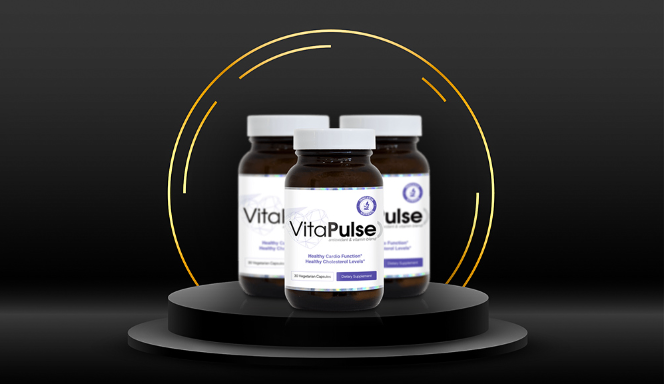Exercise and diet can help keep your heart and blood vessels in good shape…
But, like any part of your body, things can still go wrong. Genetics and aging play a big part in heart health and your heart can suffer the ravages of time. Unlike a sore knee or achy back, you can’t really give your heart a rest so that it can recover and recuperate. For instance, if the average heart beats 80 times per minute, that’s 4,800 beats per hour, 115,200 beats per day, and 42,048,000 beats per year. If you live to the age of 80, your heart will beat approximately 3,363,840,000 times.
Heart and circulatory problems are invariably severe. Coronary heart disease (just one of the conditions that can affect your heart) is the leading cause of death in the United States and most other developed countries.
Statistically speaking, one in four deaths are directly attributable to heart disease.
Your heart is a precious thing and it makes sense that you should do all you can to look after it. Avoiding excessive stress, not smoking, drinking alcohol only in moderation, exercising, eating healthily, and reaching and maintaining a healthy body weight can all help.
However, according to Princeton Nutrients, their supplement VitaPulse® can help too.
What is VitaPulse®?
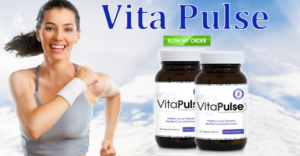
VitaPulse® is a three-in-one antioxidant supplement designed to maintain healthy cardio function and cholesterol levels, protect against “cellular damage, decrease inflammation, and boost mitochondrial health and cellular energy.”
Designed for anyone with existing heart problems, or those who want to avoid them in the future, VitaPulse® uses only natural ingredients, is gluten and lactose-free, and is suitable for vegans.
It should be noted that, while VitaPulse® IS designed to improve the health of your heart and circulatory system, it is not intended to replace heart medication. If you have any cardiovascular health issues, it should be used to supplement medication prescribed by your doctor.
This product was developed by Dr. Arash Bereliani, the Director of the Beverly Hills Institute of Cardiology and Preventative Medicine and a Board-Certified Cardiologist. Dr. Bereliani is Princeton Nutrients’ chief advisor and researcher.
You can meet Dr. Bereliani in this video where he discusses the role of supplements in preventing heart disease:
VitaPulse® contains three active ingredients:
· CoQ10 100mg
· N-Acetyl Cysteine (NAC) 250mg
· PQQ Na2 (Pyrroloquinoline Quinine Disodium Salt) 10mg
The recommended dose for VitaPulse® is one capsule per day at whatever time suits you best. Princeton Nutrition suggests that you take VitaPulse® at the same time each day to make your use of the supplement habitual.
VitaPulse® can be taken with food or on an empty stomach as preferred and comes with a 90-day money-back guarantee.
How does VitaPulse® work?
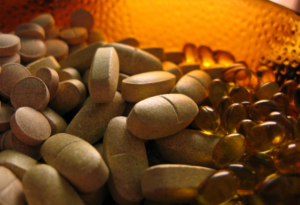
VitaPulse® is a cocktail of three well-known antioxidants – CoQ10, NAC, and PQQ Na2.
Antioxidants prevent something called free radical damage. Free radicals are molecules with unpaired electrons in their outer shells. This makes them reactive, volatile, and dangerous. Free radicals, in an attempt to regain their lost electron, attack healthy molecules causing damage as they do so. This creates more free radicals that attack more healthy molecules—creating a cascade of unhealthy reactions.
The damage caused by this cascade includes damage to:
· The heart
· The lining of blood vessels
· Nerves
· The eyes
· The brain
· This skin
Antioxidants are thought to put the brakes on free radicals by giving up an electron but without becoming unbalanced themselves. Think of antioxidants as friendly police officers keeping the peace inside your body.
Your body does its best to limit the damage caused by free radicals by producing antioxidative enzymes, but modern life can lead to more free radicals than our bodies can handle. That’s where antioxidative nutrients like CoQ10, NAC, and PQQ Na2 come in.
CoQ10
Of the three ingredients in VitaPulse®, Co-enzyme Q10 is probably the most well-known. It’s been a popular supplement for many years and is commonly cited to have numerous health benefits including:
· Preventing heart failure
· Lowering blood pressure
· Preventing age-related macular degeneration
· Promoting healthy skin and hair
· Treatment and prevention of Alzheimer’s disease
· Treatment of gum disease
· Improving the symptoms of chronic fatigue
For more on the benefits of CoQ10, please see this article by the world-famous Mayo Clinic.
CoQ10 is not just a natural substance; it is something we make in our bodies. Age and a bombardment of free radicals and other toxins can cause levels to fall. Supplementation is the only reliable way to get those levels back up.
CoQ10 is vital for cellular energy production and is a powerful antioxidant that is required for proper cell function. As such, it is considered an essential nutrient. Foods such as broccoli, dark leafy greens, nuts, fish, shellfish, pork, chicken, and beef, are all good sources of CoQ10 but, even then, they do not contain very much. The only effective way to get sufficient amounts of this substance is through supplementation.
Many studies support the efficacy of CoQ10 for treating and preventing cardiovascular problems. It is considered to be safe and presents no significant drug interactions or other side effects.
NAC
NAC is a version of cysteine, which is an amino acid. It has several functions, but the most noteworthy is supporting the synthesis of the antioxidant enzyme glutathione reductase. Glutathione reductase is one of the several antioxidative enzymes produced in your body that work together to disarm those marauding free radicals.
NAC also appears to raise nitric oxide levels, which helps to dilate blood vessels leading to reduced blood pressure and increased blood flow. Both are essential for cardiovascular health.
Leafy greens, broccoli, garlic, and even some fruits such as peaches and strawberries contain glutathione reductase but, unfortunately, dietary glutathione reductase cannot survive the digestive process. The amino acid cysteine can be found in meat (including pork and poultry), eggs, dairy, red peppers, garlic, onions, broccoli, brussels sprout, oats, granola, wheat germ, and sprouted lentils. However, very little is available for use in the production of glutathione reductase. The only reliable way to increase your levels is to increase how much your body makes.
Studies performed on NAC used doses of up to 1200 mg, whereas VitaPulse only contains 250 mg per serving.
PQQ Na2
PQQ is chemically similar to CoQ10 and, like CoQ10, occurs naturally in our bodies. Levels decline with age. PQQ is less well-known and less researched than CoQ10, but studies suggest that as well as being a powerful antioxidant, it can help reduce harmful levels of cholesterol. It can also lower levels of uric acid, which correlates to a reduced risk for gout, diabetes, and kidney stones.
VitaPulse® Studies
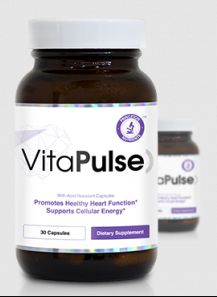
While each of the ingredients in VitaPulse is supported by research, the actual supplement itself has not been subject to any studies. That’s a shame because it could be that the three ingredients work synergistically to produce even more benefits than using any of the ingredients alone. Princeton Nutrients go so far as to say on their packing that “these statements have not been evaluated by the FDA. This product is not intended to diagnose, treat, cure, or prevent any disease.”
VitaPulse® – Our Take
VitaPulse® is a high-quality antioxidant product that contains three proven antioxidative nutrients – CoQ10, NAC, and PQQ Na2. Each ingredient has been subject to studies that support its effectiveness. Unlike so many non-researched supplements, this suggests that VitaPulse® may well do exactly what it advertises:
· Maintain Healthy Cardiovascular Functionality
· Improve Cholesterol Levels
· Protect Your Body Against Cellular Damage
· Reduce Inflammation
· Boost Mitochondrial Health
As heart health is paramount to longevity and life quality, VitaPulse® offers some important benefits that many of us would enjoy. Coronary heart disease is the leading cause of death and anything that reduces that risk has the potential to be life-changing.
Because it’s a three-in-one supplement, it’s very convenient to use. You only need to take one per day. The capsules themselves are not too big which makes them easy to swallow – an important consideration for older users and those of us who struggle to swallow pills.
On the downside, VitaPulse® is expensive and you pay a premium for the three-in-one formula. If you buy the three ingredients separately, CoQ10, NAC, and PQQ Na2, you’ll have to take more pills but, in doing so, you can save yourself a lot of money.
Another point of contention is that there are two types of CoQ10: ubiquinone and ubiquinol.
VitaPulse® contains ubiquinone, which then must be converted into ubiquinol before it can be used by your cells. This means that VitaPulse® does not contain the best possible form of CoQ10. With ubiquinol, you get more bang for your buck and studies suggest it is a more effective way to use CoQ10. Because VitaPulse® is a premier product, it would have been nice to see ubiquinol in the ingredients list.
So, does VitaPulse® work?
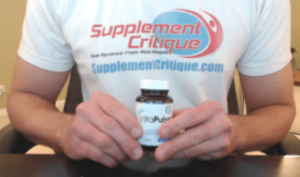
Maybe.
Why only maybe?
The main reason is that while the ingredients have been proven by science, the supplement itself has not. There is no reason to think it WON’T work but the only evidence that supports the use of VitaPulse is anecdotal rather an empirical.
VitaPulse® Reviews
The reviews on the Internet for VitaPulse® are generally very good, and the product has been well received. Reviews include:
Betty Chaney, on highya.com, says “I have been using VitaPulse for approximately two months now. Recently, I had a visit to my primary physician and to my cardiologist. My blood pressure, which has a tendency to be high, was 132/80 and 132/86. I was very happy with these results. I also recently changed my hair style and received a lot of compliments saying I looked younger. I had attributed it to the hair style, but it has now occurred to me that it may be due to VitaPulse and improvements in my facial appearance.”
Chelsea, on supplementpolice.com, says “I am a 62 yr young female in fairly good health, but I was so tired. I bought the 3 month supply of VitaPulse then didn’t begin to use it for several weeks until my system was normal so I could tell a difference and happily, I could. First day I took VitaPulse, didn’t notice a difference. Second day, more energy, clearer thinking. It’s a nice sustained energy throughout the day, not a burst of frenzy and then a drop. Hasn’t made me unable to sleep. Have continued use for a week and am happy with the energy results. Haven’t noticed reduced inflammation in my joints yet, although gastrointestinal bloating and irritated bowels have ceased in such a way I can tell it was the Vita-pulse. That was unexpected!”
Mark Williams, on supplement-geek.com, says “I am 54 years old and have been taking Vitapulse for about 80 days now. After roughly 70 days my LDL levels dropped from 196 to 163 and my HDL levels went from 33 to 36. I am also on low level BP and cholesterol meds and have been for 10 plus years. Seeing how I am most concerned with my LDL:HDL ratio and my very low HDL levels I am going to stay with Vitapulse a bit longer. I hope this helps the rest of you considering this product.”

